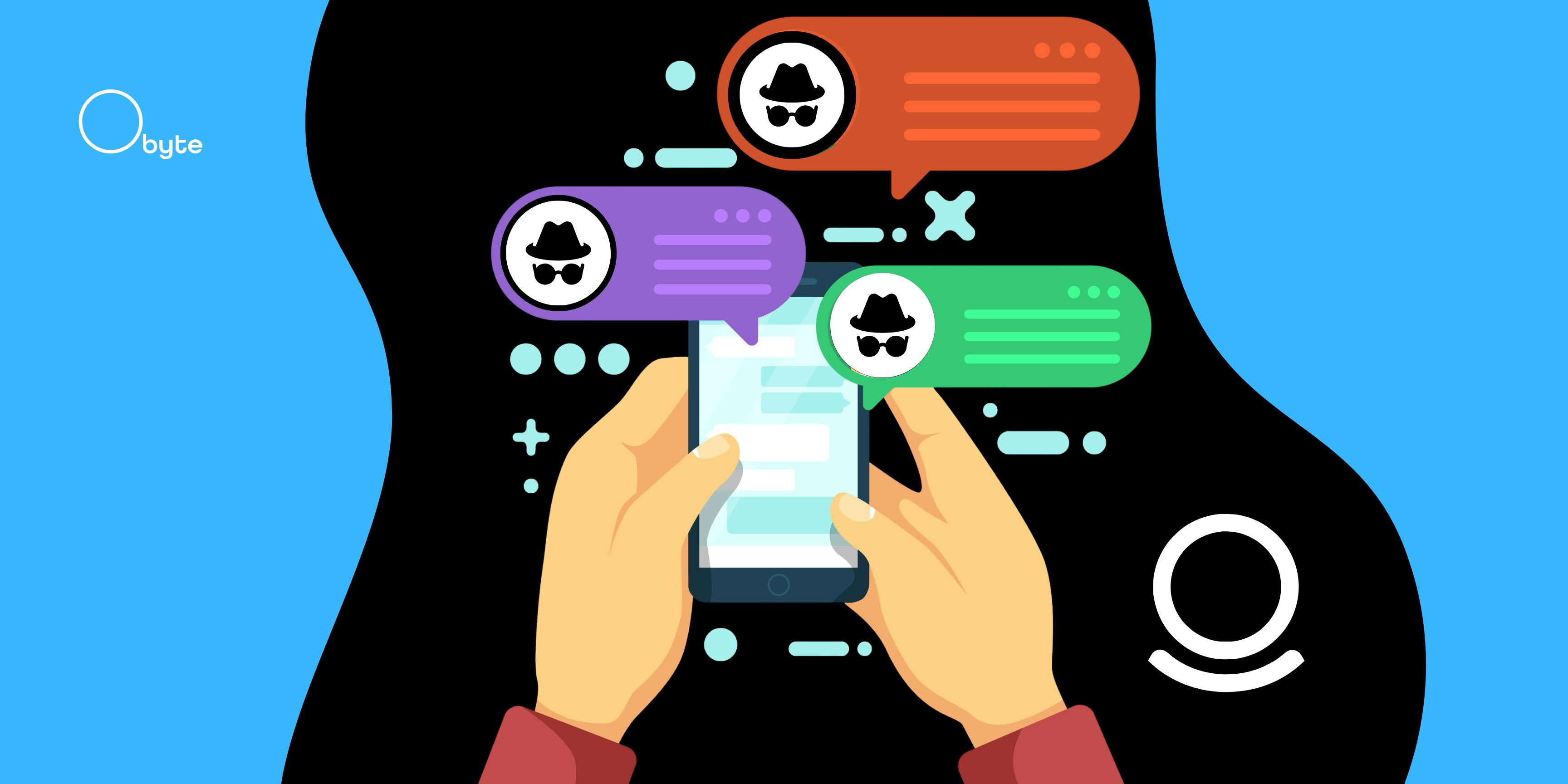These days, it feels like everyone’s reading over your shoulder: from tech giants to hackers and even governments. The apps we trust for private chats often track us, show ads, or share data without asking. That’s why more and more people are turning to open-source, privacy-first messengers built by communities, not corporations.
In fact, about 80% of American users worry about how companies and the government itself handle their personal data [
So, if you care about keeping your conversations (and your data) truly private, let’s check out some great free and open-source apps designed to protect your privacy. And if you like what you find, you can even support their developers by sending crypto donations via
Session
Session is a messenger designed to keep your conversations private and anonymous. It was released in February 2020 by the Session Technology Foundation, a non-profit group based in Switzerland. Unlike most messaging apps, Session doesn’t ask for your phone number or email when you sign up: you just get a random ID and start chatting. Its main goal is to help you communicate without giving away your identity or personal data.
What makes
Looking ahead, Session plans to grow its network and introduce optional premium features, powered by the Session Token. You can support its development and infrastructure through donations (either in traditional currencies or crypto) directly to the foundation that keeps it running. That is also possible
Delta Chat
This is a messenger that cleverly turns email into a secure, instant chat experience. It was
You don’t even need to use your personal email —you can set up anonymous profiles on special “
Funding for Delta Chat comes entirely from public grants and community donations, so no venture capital, and no selling data. It’s been supported by EU projects, the Open Technology Fund, the NLnet Foundation, and individual donors. Many passionate contributors also volunteer their time to keep improving it, making it a truly community-driven effort to keep messaging private and open to everyone. You could also
Ricochet Refresh
Released in 2022 as a modernized version of the original Ricochet from 2014, it’s maintained by Blueprint for Free Speech, a non-profit founded by Australian cypherpunk
Unlike typical messengers,
Funding for the project comes from public grants and community support. Specifically, it’s backed by
Simplex Chat
Evgeny Poberezkin, founder of this handy app, said about the motivations for it: "Every messenger app that knows who you are can end up sharing all of your connections with undesirable third parties, either as a result of a court order or as a result of attack (...) I hope our messenger can help people living in the oppressive regimes to express their opinions without fear and risk of prosecution,” —and that’s how Simplex Chat
https://www.youtube.com/watch?v=rZeVhsv_JAY&embedable=true
What makes
SimpleX is still growing, with exciting plans like better group management, message mixing for extra anonymity, and more user-friendly features on the way. The project is funded largely by user donations and support from the privacy community. If you chip in (even just the cost of a coffee), you help keep this privacy-first platform alive and evolving. Remember that you can
CoyIM
CoyIM
It uses the XMPP protocol, which is like a universal language for chat apps, and adds OTR (Off-the-Record) encryption, which keeps your conversations private and secure while making them feel ephemeral, like a whispered secret that leaves no trace. CoyIM also runs all your connections through Tor automatically if you have it installed, adding another layer of anonymity. You don’t need to worry about setting it all up yourself; it comes with these protections already baked in, which is rare for open-source privacy software.
Looking ahead, the developers still have plans to improve CoyIM, including adding more languages and polishing the design. But they also warn that the software as a whole hasn’t yet gone through a full security audit, even though its OTR encryption component has been reviewed and improved after an initial audit. That’s something to keep in mind if you’re dealing with very sensitive situations. Funding and contributions come from the open-source community. You’re welcome to pitch in, whether it’s coding, translating, or
Send donations via Kivach!
If you ever want to support your favorite open-source project on GitHub with crypto,
The best part? You don’t need to ask the developer’s permission or wait for them to set anything up. Anyone can donate to any public GitHub repository. You’ll need to tell them so they can claim, though. Once the developer links their Obyte wallet to their GitHub through a quick attestation, they can take the funds you sent. It’s an easy and secure way to show appreciation for their work.
On top of that, remember that Kivach supports something called cascading donations. This means that when you donate to a project, a portion of your gift can also trickle down to other projects it depends on, spreading the love to even more developers who helped make it all possible.
You can also check our previous episodes in this series!
5 Open-Source Projects You Can Donate to via Kivach, Episode IV: Privacy Tools 5 Open-source Blogging and Writing Tools to Donate to via Kivach (Ep V) 5 Open-Source Tools You Can Donate to via Kivach, Episode VI: Decentralized Services 5 Open-Source Projects to Donate via Kivach, Episode VII: Games to Play for Free! 5 Cybersecurity Tools to Use for Free and Donate to Via Kivach 5 Free Data Recovery and Backup Projects to Donate to Via Kivach 5 Open-Source Learning Software Projects to Donate Via Kivach 5 Open-Source Software for Global Teams To Donate via Kivach Author Your Own Adventure With These 5 Must-Try Free Tools 5 Open-Source Crypto Tools You Can Use for Free —and Support with Kivach
Featured Vector Image by


